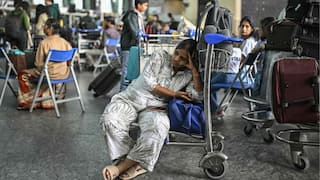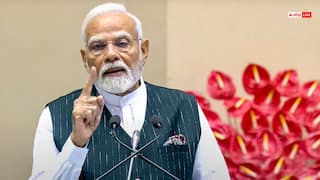Sustainable Development Goals Can't Be Achieved Without Realisation Of Child Rights: Niti Aayog CEO Amitabh Kant
Endorsing the need for such a report, Amitabh Kant said, "In this Decade of Action for achieving the SDGs, this report is an excellent effort to examine critical child rights issues."

New Delhi: NITI Aayog Chief Executive Officer (CEO) Amitabh Kant has recently said that Sustainable Development Goals cannot be achieved without the realisation of child rights and Sustainable Development Agenda has huge implications for the rights of children.
"The SDGs cannot be achieved without the realisation of child rights. It is important to prioritise children in the endeavour to achieve SDGs (Sustainable Development Goa"l) as Sustainable Development Agenda has huge implications for the rights of children, Kant said.
He said this while speaking at an event organised by child rights NGO Save the Children.
The United Nations member states have adopted 2030 Agenda for Sustainable Development which aims to provide a shared blueprint for peace and prosperity for people and the planet, now and into the future.
There are 17 SDGs which are an urgent call for action by all countries including developed and developing nations in a global partnership.
Endorsing the need for such a report, Amitabh Kant, CEO, NITI Aayog stated, "In this Decade of Action for achieving the SDGs, this report is an excellent effort to examine critical child rights issues that are relevant for India’s performance on the SDGs and for alignment with the UNCRC provisions."
"I am confident that this report will provide critical insights, especially from children's perspectives, on progress made by India on child rights issues and would be useful for relevant stakeholders to undertake corrective measures and effective policy action for children," he added.
Meanwhile, delivering the keynote address, Shri Rakesh Ranjan, Mission Director Aspirational District Program NITI Aayog said: "The pandemic has put a spotlight on vulnerable and at-risk children and a multi-stakeholder discussion is critical to address their needs effectively."
"To effectively monitor the success of any initiatives, relevant and timely data is critical. Addressing data gaps on critical issues affecting the children is critical, which includes data generated by diverse stakeholders, including the children," Ranjan added.






































